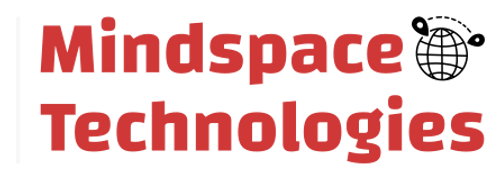Unveiling Modern Business Consulting Strategies
- Faizan Ahmed Mohammad
- 3 days ago
- 4 min read
In today’s fast-paced and technology-driven world, businesses must continuously evolve to stay competitive. The landscape of consulting has transformed dramatically, moving beyond traditional advice to embrace data, innovation, and measurable outcomes. As someone deeply involved in this field, I’ve witnessed firsthand how modern consulting strategies empower organizations to unlock new levels of efficiency and growth. This post explores these strategies, offering practical insights and actionable recommendations to help you navigate the complexities of digital transformation and operational modernization.
Embracing Modern Consulting Strategies for Business Growth
Modern consulting strategies are no longer about generic recommendations or one-size-fits-all solutions. Instead, they focus on customized, data-driven approaches that align with a company’s unique goals and challenges. The key elements include:
Data Analytics and Insights: Leveraging big data and advanced analytics to identify trends, inefficiencies, and opportunities.
Technology Integration: Implementing cutting-edge tools such as AI, machine learning, and automation to streamline processes.
Agile Methodologies: Adopting flexible frameworks that allow rapid iteration and adaptation to changing market conditions.
Collaborative Partnerships: Working closely with internal teams to ensure solutions are practical and sustainable.
For example, a retail company struggling with inventory management might use predictive analytics to forecast demand more accurately. This reduces overstock and stockouts, improving cash flow and customer satisfaction. By integrating an automated replenishment system, the company can further reduce manual errors and free up staff for higher-value tasks.

Leveraging Technology to Drive Transformation
Technology is the backbone of modern consulting strategies. It enables businesses to transform operations, enhance decision-making, and accelerate growth. Here are some practical ways technology is reshaping consulting:
Cloud Computing: Facilitates scalable and flexible infrastructure, allowing businesses to access resources on demand.
Artificial Intelligence (AI): Powers intelligent automation, customer insights, and predictive modeling.
Robotic Process Automation (RPA): Automates repetitive tasks, reducing errors and operational costs.
Internet of Things (IoT): Provides real-time data from connected devices, improving supply chain visibility and asset management.
A manufacturing firm, for instance, can use IoT sensors to monitor equipment health in real time. This proactive approach minimizes downtime and maintenance costs. Coupled with AI-driven analytics, the company can optimize production schedules and resource allocation.
By embracing these technologies, businesses not only improve efficiency but also gain a competitive edge in their markets.
Do consultants make a lot of money?
The question of consultant earnings often arises, and the answer depends on several factors including expertise, industry, and the value delivered. Consultants who specialize in modern strategies such as digital transformation, data analytics, and process automation tend to command higher fees due to the measurable impact they provide.
Here’s why:
High Demand for Specialized Skills: Expertise in emerging technologies and business models is scarce and highly sought after.
Value-Based Pricing: Consultants who demonstrate clear ROI can justify premium rates.
Diverse Engagements: From short-term projects to long-term partnerships, consultants can tailor their services to client needs, often increasing revenue streams.
For example, a consultant helping a financial services firm implement AI-driven risk management tools can significantly reduce losses and compliance costs. This tangible benefit often translates into lucrative contracts and repeat business.
While income varies, the potential for financial success in consulting is strong when combined with continuous learning and delivering measurable results.

Building Collaborative and Innovative Partnerships
One of the most effective modern consulting strategies is fostering collaborative partnerships. This approach moves away from the traditional “advisor-client” dynamic to a more integrated relationship where consultants and business leaders work side by side.
Key practices include:
Co-creation of Solutions: Engaging stakeholders from different departments to design practical and innovative solutions.
Transparent Communication: Maintaining open channels for feedback and progress updates.
Continuous Learning and Adaptation: Encouraging experimentation and iterative improvements.
For instance, during a digital transformation project, involving IT, operations, and marketing teams ensures that technology solutions meet diverse needs and gain broad acceptance. This reduces resistance and accelerates adoption.
Innovation thrives in environments where ideas flow freely and risks are managed collaboratively. Consultants who champion this mindset help organizations build resilience and agility.
Measuring Impact and Ensuring Sustainable Growth
Modern consulting strategies emphasize measurable impact and long-term sustainability. It’s not enough to implement new tools or processes; success must be quantifiable and aligned with strategic objectives.
To achieve this, I recommend:
Defining Clear KPIs: Establish metrics that reflect business goals such as revenue growth, cost reduction, customer satisfaction, or operational efficiency.
Regular Performance Reviews: Monitor progress and adjust strategies based on data insights.
Embedding Continuous Improvement: Encourage a culture where teams seek ongoing enhancements beyond the initial project.
For example, a logistics company might track delivery times, fuel consumption, and customer feedback before and after implementing route optimization software. These metrics provide concrete evidence of the consulting engagement’s value.
Sustainable growth comes from combining technology, people, and processes in a way that continuously adapts to market changes and customer expectations.
Partnering with Experts for Digital Transformation Success
Navigating the complexities of digital transformation requires trusted partners who bring both expertise and a collaborative spirit. That’s why I often recommend engaging with firms specializing in business consulting that focus on data, technology, and process automation.
Such partners help organizations:
Identify the right technologies and strategies tailored to their unique needs.
Implement solutions efficiently while minimizing disruption.
Build internal capabilities for ongoing innovation and growth.
By choosing the right consulting partner, businesses can accelerate their transformation journey and achieve sustainable competitive advantages.
Modern business consulting strategies are about more than advice - they are about delivering measurable value through innovation, collaboration, and technology. By embracing these principles, organizations can unlock new opportunities, improve operational efficiency, and position themselves for long-term success in an ever-evolving marketplace.


Comments